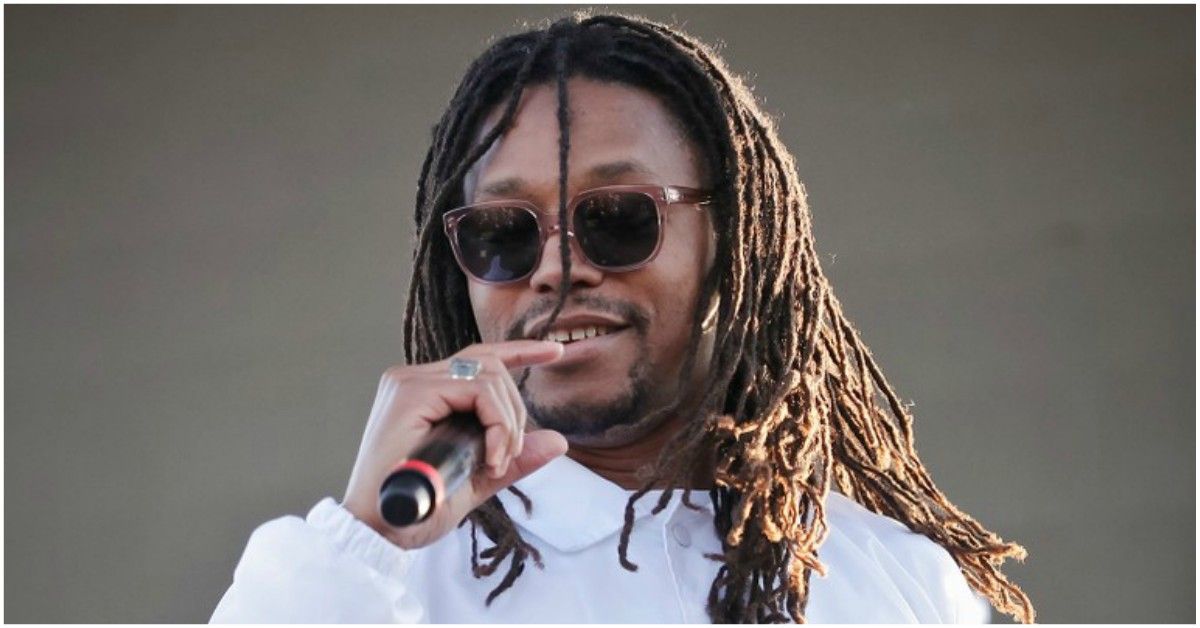We are always interested in seeing what happens to rappers. After all, they tend to find themselves in all sorts of interesting predicaments, such as the drama between Offset and Cardi B. And sometimes, these talented individuals meet an untimely fate. This includes King Von who recently lost his life in Atlanta. Of course, not all rappers are wrapped up in tragedy. Artists like Chance The Rapper is always in the news for something awesome and impactful. This includes his recent collaboration with other artists to help out low-income families.
Unfortunately, unlike Chance, the career of Lupe Fiasco went in a negative direction. And, in the opinion of many, he brought his fate in the industry on himself.
Here's what happened and why he left the music industry forever...
Lupe Made Some Major Music Moves Before His Downfall
Born Wasalu Muhammad Jaco, Lupe Fiasco always had his eye on music. As a kid, he developed an interest in hip hop, although he always disliked the vulgarity of the genre. This inspired him to write things his way, which is exactly what he did... from his dad's basement.
Lupe Fiasco's parents were anything but happy about him wanting to become a rapper, but he pursued his dreams anyway. He joined a couple of groups before going his own way as a solo artist. According to The Guardian, Lupe Fiasco even got linked up with mega-producer L.A. Reid, although his future hung in the balance after L.A. was fired from his position.
Then Jay-Z came along and helped Lupe Fiasco get signed at Atlantic Records. This is what set the ball in motion for his biggest career moves.
In September 2006, he released his debut album called "Lupe Fiasco's Food & Liquor". It received three Grammy nominations.
At that point, Lupe was on top of the world and the industry was his oyster.
Lupe's Activism And His Career Aligned
At this point in Lupe Fiasco's career, he was actively raising awareness for things he cared about. When he remixed Kanye West's song, "Diamonds from Sierra Leone", he intended to talk about the conflict of the diamond business.
It was his love of protest rap and these kinds of creative decisions that built him an audience of dedicated fans.
It also got Kanye to put Lupe Fiasco on his album "Late Registration".
Soon after, Lupe released his first single, "Kick, Push". From there he created "I Gotcha" and "Daydreamin'", which featured Jill Scott.
The music industry lauded Lupe Fiasco's work and he was even voted by GQ Magazine as the "Breakout Man of the Year". This was followed by four BET Hip Hop Award nominations and some important positioning on the Billboard Top 100 chart.
"The Cool", in 2007, was Lupe Fiasco's next album which was also well received by critics and propelled him into further collaborations with Kanye West, as well as with Pharrell.
But by 2010, when Lupe Fiasco was working on his "Lasers" album, he was already running into trouble. First of all with Atlantic Records, who feared his work lacked commercial singles. This encouraged him to collaborate with even more artists while he awaited "Lasers" release.
After two and a half years, "Lasers" was finally released and received mixed reviews from critics. Perhaps part of this was because of the stances Lupe took in his work, including calling out President Obama for various warmongering positions, siding with Occupy Wallstreet, and criticizing Israel for their relations with the Palestinian people in a way that set him up for further conflict with the Jewish people.
Lupe Fiasco Definitely Sounded Anti-Semitic
While Lupe Fiasco had some very strong opinions about Israel in songs like "Words I've Never Said", it was other comments that got into trouble with the Jewish community and all those who fight against the growing plague of anti-Semitism in Western culture.
In 2016, Lupe released a freestyle called "N.E.R.D.", which included the line "Artist gettin' robbed for their publishing/By dirty Jewish execs that think his alms from the covenant."
This caused a huge uproar, but Lupe claimed he wasn't being anti-Semitic at all, according to The Guardian.
In fact, he Tweeted out how he had walked through Auschwitz and seen the ovens used by the Nazis in the Holocaust and therefore knew the plight of the people... Although if he had been paying attention to his learnings of the Holocaust he would know that the Jewish people were always described as "dirty" in Nazi propaganda. Not to mention the fact that the religion, ethnicity, or race of an executive supposedly taking advantage of an artist has absolutely no relevance to the discussion about the rights of creatives.
While Lupe Fiasco stood by what he said, many fans rebelled against him, as did critics and a good number of Lupe's contemporaries. Eventually, SoundCloud removed his song for "hate speech" and Lupe retired from music.
Soon after the wave of anger, Lupe took to Twitter and wrote, "I get the hint… I’m officially not releasing anymore music. Albums canceled… Getting beat up for telling the truth is not how I plan on spending the rest of life," according to NME.
Lupe Fiasco has remained pretty silent in recent years. Although in March 2018, he produced and starred in a three-part TV documentary about his travels in China and his passion for martial arts. But other than that, he's seemed to disappear.
Since he's shown little to no remorse about the comments he's said about Jewish people, perhaps this is a good thing.

